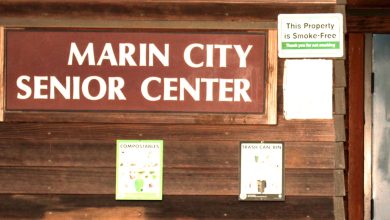Alameda County D.A. Charges Man Suspected in Oakland Shooting and San Leandro Homicides

By Magaly Muñoz, Post Staff
Alameda County District Attorney Pamela Price matched the $2 million Organized Retail Theft Vertical Prosecution state grant that her office was awarded in September with an additional $2 million. This raises the total funding to combat organized retail crimes within the county to $4 million.
The funds came from the Budget Act of 2022 (Senate Bill 154) that Gov. Gavin Newsom signed last year, which allocated a total of $267,118,293 to fight organized retail crime, the largest-ever single investment by the state.
The Board of State and Community Corrections (BSCC) awarded grants to 55 local law enforcement agencies across California as part of the Governor’s Real Public Safety Plan.
These grants, aimed at preventing, investigating, and prosecuting cases of organized retail theft, will be distributed among 31 police departments, seven sheriff’s departments, one probation department, and 13 district attorneys’ offices.
In Alameda County, the Newark and Fremont police departments were among the 31 police offices that were awarded the state grants. They received $986,444 and $2.5 million respectively.
With the allocation of the new funds, Price was able to add more staff for theft prosecution, including an additional deputy district attorney and an inspector. The team will be overseen by Otis Bruce Jr., the chief assistant district attorney, who will also be in charge of the prosecutions for the crimes.
“I’m focused on solutions, which is why we’re here today. The people of Alameda County elected me to do this work and we’re doing it,” Price said in a press conference.
Although the county at large will benefit from these funds, attention has turned to the city of Oakland, which missed the deadline for the state grant.
During a press conference last month, the Oakland NAACP chapter called out the city and Mayor Sheng Thao for their failure to apply in time for the state grant, missing out on almost $15 million in funding that could be used to prosecute retail crime with extra police patrols, squad cars, and automated license plate readers to track down suspected perpetrators of crime.
In response to the missed deadline, small business owners in Oakland staged a one-day strike to show solidarity with the community and call for the city to intensify efforts to ensure public safety and combat retail crime.
“Every single day, I wake up to phone calls, e-mails, and texts about new businesses in my district getting hit with break-ins, and it’s very overwhelming for longtime, legacy Oakland businesses to feel like they’re not going to be able to stay here,” Oakland Councilmember Janani Ramachandran (D4) said.
In May, Ramachandran proposed funding a grant writer within the Oakland Police Department to focus on all public safety-related grants.
She said that up until that point, staff members across departments had been tasked with grant writing on top of all the other work that they were already managing and making it harder to meet deadlines like the one set by the state.
Councilmember Treva Reid (D7) said she’s been working in conjunction with Ramachandran and Councilmember Kevin Jenkins (D6) to establish a regional public safety task force to foster collaboration and invest in short- and long-term strategies that can achieve community safety goals.
They plan to leverage technology and resources to enhance communication systems overall.
Reid said her district has been plagued with crime, and not only are her constituents suffering greatly because of it, but it’s hitting every corner of the city.
“We live it [crime]. We endure trauma daily,” Reid said.
She stated that she’s been able to get a policy in the budget that directs the city administrator to return to the council with a report to develop written policy frameworks for equitable service delivery in every city department so that resources and services can be allocated out in the community.
Reid emphasized that city leaders need to be more involved with the community. She pointed out a gap in trust that people have in their leaders and the leaders’ follow-through on delivering community priorities, such as public safety.
In a special City Council meeting on Tuesday, Mayor Thao laid out her plan for community safety in her State of the City address and took responsibility for missing the deadline for the state grant.
She stated that her office is now fast-tracking the hiring of a grant writer, bringing in people with grant writing expertise, and upgrading these management tools.
Her address included plans for more police presence on the street, more 911 dispatchers for improved answer times, and new technologies like 300 new automated license plate readers throughout Oakland to collect evidence quicker.
“Oakland, we will learn from this experience and do better for our city and for everyone that does business here,” Thao said.





